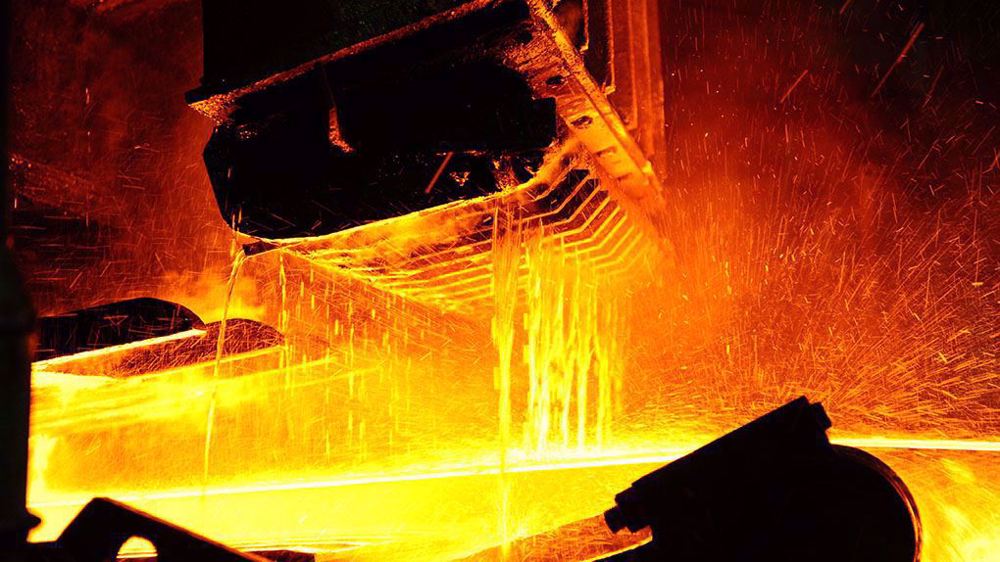Iran, ASEAN to sign cooperation treaty: Singapore
Iran will sign a cooperation treaty with the Association of Southeast Asian Nations (ASEAN) in a move which could lead to wider economic cooperation between the country and East Asia.
Singapore’s non-resident ambassador to Tehran was quoted by media as saying that the treaty would be signed at an upcoming gathering of ASEAN's foreign ministers.
Ong Keng Yong said Iran’s Foreign Minister Mohammad Javad Zarif would sign the document at the event that would open in Singapore on July 30.
"The ASEAN countries welcome anyone who wants to sign onto the Treaty of Amity and Cooperation,” Ong said.
The treaty would come only two months after US President Donald Trump pulled the US out of an international nuclear agreement with Iran and announced that he would re-impose sanctions that were largely lifted due to the same deal against the country.
Nevertheless, experts believe that Asian countries are likely to brush off US sanctions and maintain business ties with Iran despite Washington’s pressure to halt trade with the country.
Barak Seener, a research fellow in Middle Eastern Studies at the Royal United Services Institute (RUSI), told the Israeli daily The Jerusalem Post on Saturday that the European Union may toe the US line regarding anti-Iran sanctions, but Asian countries, or at least their influential companies, are likely to keep doing business with Tehran.
He stressed that China, Russia, South Korea and India may continue their trade with Iran and that the withdrawal of European firms from the Iranian market like French energy giant Total would have no broad effects on the country’s economy.
In May, US President Donald Trump announced that he would unilaterally withdrew the 2015 nuclear agreement with Iran - technically named the Joint Comprehensive Plan of Action (JCPOA) - despite the objections of Europe as well as Russia and China — the other two parties to the deal.
Washington's withdrawal from the JCPOA entailed not only the re-imposition of sanctions on Iran but also the so-called secondary sanctions on third countries. Most recently, the White House has announced that it would try to bring Iran’s oil sales down to “zero.” The measures would collectively cause difficulties for Europe to maintain trade ties with Iran, as warned by experts.
Elsewhere in his interview with The Jerusalem Post, Seener said that China has a number of massive state-run enterprises that have “nothing to lose if they enter the Iranian market, and they will replace companies that have exited, like Total. They do not suffer any negative consequences because they never have to enter the US market.”
China, like other Asian countries, is allying itself with Iran in a bid to accommodate its growing population and economy and at the same time has increased its interest in Iran by signing multi-billion-dollar deals, he added.
China is Iran’s largest trading partner and the biggest importer of Iranian crude, Seener pointed out.
South Korea will also follow suit with China as Seoul saw its import of Iranian oil increase by 67 percent between mid-2015 and mid-2016, he said. South Korea aims to double the delivery of Iranian oil and seeks cheaper sources of oil.
As of 2017, Iran has “firmly retaken its market share in South Korea, where it has become the second-largest exporter to Seoul,” Seener said.
He further predicted that India, which has earmarked at least $20 billion in investments in the Iranian energy market, could come down on Iran’s side.
India, he said, is trying to make a payment of $6.5 billion in arrears to Iran to gain greater access to investments and resources in the country.
Seener concluded that “Trump needs to prioritize objectives: Is his objective to equalize global trade and implement tariffs? If he does that, will he have China play ball on North Korea and Iran? Then China will want commodities at a knockdown rate. China won’t equalize trade and will not abide by Iran sanctions.”
Iran is currently “sticking to the deal to attract foreign companies and with an orientation toward Asia. After that, if they are unsuccessful, Iran may simply walk away from the deal,” he said.
VIDEO | Press TV's news headlines
Iran censures US veto of Palestinian request for full UN membership
Over 14,000 kids killed in Israel’s war on Gaza: UNICEF
VIDEO | Iran’s National Army Day marked at the Iranian embassy in Moscow
VIDEO | Iranian culture fosters further development, understanding in SA
VIDEO | People in Amman hold protest in support of Palestinians
French police arrest man after threatening to detonate himself at Iran consulate
Yemenis, Jordanians reiterate support for Palestinians in Gaza

















 This makes it easy to access the Press TV website
This makes it easy to access the Press TV website